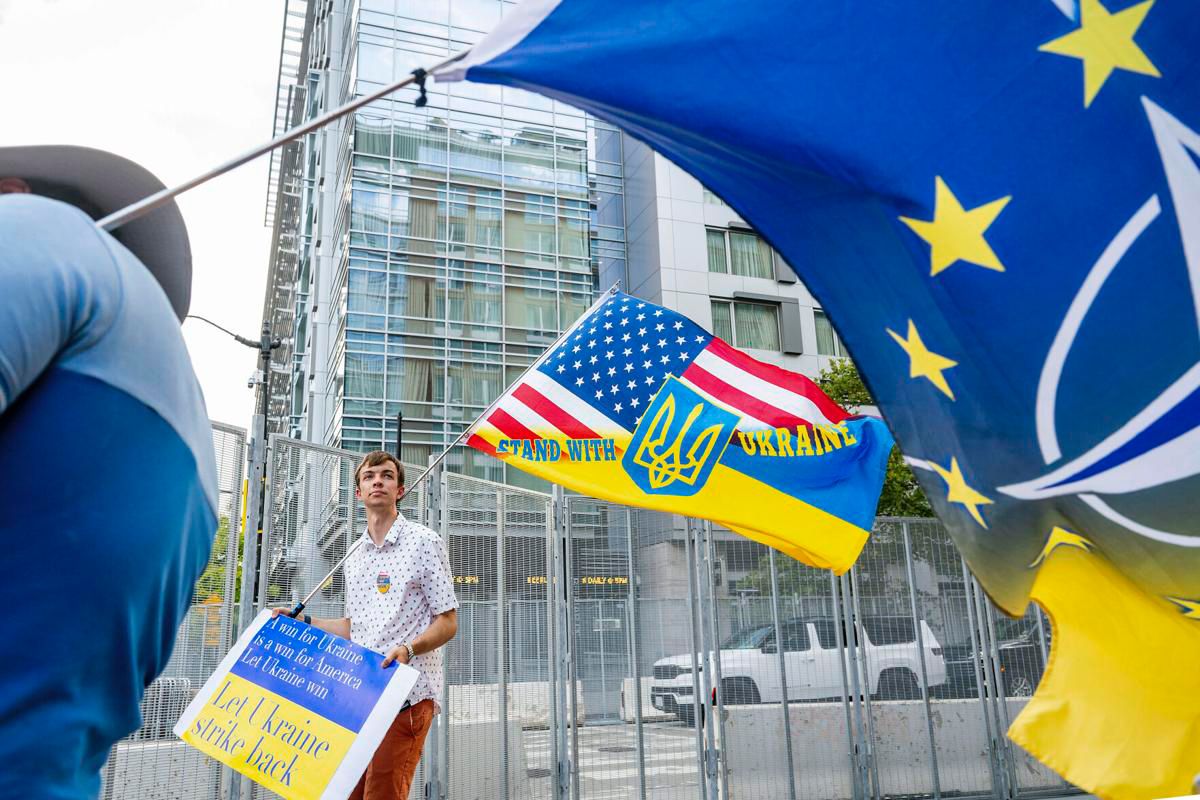In autumn 2024, the Kremlin made another step towards fresh nuclear blackmail. On 25 September, Vladimir Putin publicly hinted at the possibility of expanding the conditions for the use of nuclear weapons, stressing the need to “forecast the development of the situation” and update strategic documents to new circumstances.
On 19 November 2024, Putin signed an updated nuclear doctrine, setting out new rules of the nuclear game that were supposed to be a factor of pressure not only on Ukraine but also on the West, in particular, regarding further military support for Kyiv.
The updated doctrine stipulates a condition for Russia’s nuclear response in case of a “critical threat” to sovereignty, including the use of conventional weapons, citing “the event of verified information about a large-scale launch of aerospace attack assets and their crossing of the Russian border.”
In order to “lock in the effect” of the document, the Russian authorities demonstratively fired an experimental ballistic missile from the Kedr system at the million-plus Ukrainian city of Dnipro.
Almost seven months after Moscow updated its nuclear doctrine, Kyiv has carried out an unprecedented strike. On 1 June 2025, Ukraine conducted the historic Operation “Spiderweb,” an attack on four Russian military airfields in the deep rear: “Belaya” (Irkutsk region), “Dyagilevo” (Ryazan region), “Olenya” (Murmansk region), and “Ivanovo” (Ivanovo region).
According to initial information, the strikes destroyed or damaged more than 41 Russian strategic aircraft, including Tu-95, Tu-22M3, Tu-160 bombers and A-50 reconnaissance planes.
A hundred Ukrainian drones took off from specially equipped trucks right next to Russian air bases without crossing the border, raising questions not only about the security of strategic facilities in the deep rear but also about the effectiveness of all Russian law enforcement agencies. In fact, Russia has not experienced such a shameful defeat since it was founded.
The damage and destruction of Russian strategic bombers is not only a direct reduction in the military’s potential to launch missile strikes on civilian Ukrainian cities.In strategic terms, Operation “Spider’s Web” caused significant damage to the Russian nuclear arsenal that Moscow will find extremely difficult to restore. In particular, restoration will require decades and billions of dollars — and this is only if the Russian defence industry is capable of producing such aircraft at all.
Moreover, such successes by Ukraine’s Defense Forces may have another consequence: they serve as a clear demonstration of Kyiv’s capabilities — a trump card that Donald Trump has repeatedly claimed Ukraine lacked when speaking about the war.
This strike also proved that most of the “red lines” and Russian threats, including those with a nuclear component, are just “weapon saber-rattling” aimed at intimidation.
At the same time, as Zelenskyy stated at the Summit of NATO’s Eastern and Northern Flank Leaders in Vilnius on 2 June 2025, Russia cannot veto NATO’s decisions and cannot be involved in decisions about Europe’s future since Putin has chosen to confront it.
In particular, this should be understood by those European leaders who are still frightened by Putin’s threats of nuclear war or World War III.
A strike on an element of the Russian nuclear arsenal is not only in the interests of Ukraine, but also in the interests of overall European security.The Ukrainian army is actively working — with its own forces — to reduce Russia’s military threat to the European continent, precisely as European intelligence agencies are warning of a possible direct Russian aggression against NATO’s Eastern member states in the coming years.
Today, European countries concerned with their own security have a unique chance to contribute to the reduction of Russian military capabilities by investing in the Ukrainian defence industry, supporting its army, and bolstering its defense by procuring long-range weapons, missiles, and drones.
It is only Ukraine’s success on the battlefield that will determine how quickly, if at all, Moscow will be able to rebuild its forces for a possible attack on Europe in the coming years.
Editor’s note. The opinions expressed in our Opinion section belong to their authors. Euromaidan Press’ editorial team may or may not share them.
Submit an opinion to Euromaidan Press






